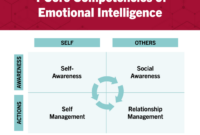Business intelligence vietnam – Delving into the vibrant landscape of business intelligence in Vietnam, we uncover a world of untapped potential and transformative opportunities. With the increasing adoption of data-driven decision-making, businesses across industries are unlocking new levels of efficiency, competitiveness, and growth.
The business intelligence market in Vietnam is experiencing a surge in growth, driven by the need for data-driven insights and the government’s push towards digital transformation. Major players are emerging, shaping the competitive landscape and introducing innovative solutions.
Overview of Business Intelligence in Vietnam
Business intelligence (BI) is gaining traction in Vietnam as businesses seek to improve their decision-making and gain a competitive edge. The adoption of BI tools is increasing, with companies recognizing the value of data-driven insights.
According to a recent study, the Vietnamese BI market is expected to grow at a CAGR of 15% over the next five years. The key drivers of this growth include the increasing availability of data, the growing adoption of cloud computing, and the government’s push for digital transformation.
Challenges of Business Intelligence in Vietnam
- Lack of skilled professionals
- Data quality and integration issues
- Security concerns
Market Landscape for Business Intelligence in Vietnam
The Vietnamese BI market is dominated by a few major players, including:
- SAP
- Oracle
- Microsoft
- IBM
- Tableau
These vendors offer a range of BI solutions, from on-premises to cloud-based, to meet the needs of businesses of all sizes.
Key Trends in the Vietnamese BI Market
- Growing adoption of cloud-based BI solutions
- Increasing use of artificial intelligence (AI) and machine learning (ML) in BI
- Focus on data visualization and storytelling
Key Applications of Business Intelligence in Vietnam
Businesses in Vietnam are using BI to improve their operations in a variety of ways, including:
- Customer relationship management (CRM)
- Supply chain management
- Risk management
- Fraud detection
- Financial planning and analysis
BI tools help businesses to identify trends, patterns, and opportunities in their data, which can lead to improved decision-making and better business outcomes.
In the realm of business intelligence in Vietnam, the distinction between business intelligence analysts and data analysts is crucial. While both roles delve into data, business intelligence analysts focus on transforming raw data into actionable insights for decision-making. To delve deeper into this distinction, explore the comprehensive guide on business intelligence analyst vs data analyst.
Returning to the Vietnamese context, business intelligence remains a powerful tool for enterprises seeking to optimize operations and drive growth.
Benefits of Business Intelligence in Vietnam

- Improved decision-making
- Increased efficiency
- Reduced costs
- Improved customer satisfaction
- Competitive advantage
Challenges and Opportunities for Business Intelligence in Vietnam
While BI is gaining popularity in Vietnam, there are still some challenges that businesses face when implementing BI solutions.
When it comes to business intelligence in Vietnam, it’s crucial to understand the difference between business analytics and business intelligence. Business analytics focuses on analyzing data to uncover trends and patterns, while business intelligence provides insights into past performance and current operations.
By leveraging both disciplines, businesses in Vietnam can gain a competitive edge by making informed decisions based on data-driven insights.
Challenges
- Lack of skilled professionals
- Data quality and integration issues
- Security concerns
Opportunities, Business intelligence vietnam
- Growing demand for BI solutions
- Government support for digital transformation
- Increasing availability of data
Best Practices for Business Intelligence in Vietnam
To successfully implement and use BI tools, businesses in Vietnam should follow these best practices:
- Start with a clear business objective
- Choose the right BI tool for your needs
- Invest in data quality and governance
- Train your team on how to use BI tools
- Monitor your BI implementation and make adjustments as needed
Case Studies
- Vinamilk: Vinamilk, Vietnam’s largest dairy company, used BI to improve its supply chain management and reduce costs.
- FPT Software: FPT Software, a leading Vietnamese IT company, used BI to improve its customer relationship management and increase sales.
Future of Business Intelligence in Vietnam

The future of BI in Vietnam is bright. The market is expected to continue to grow as businesses increasingly recognize the value of data-driven insights.
Emerging Trends
- Growing adoption of cloud-based BI solutions
- Increasing use of AI and ML in BI
- Focus on data visualization and storytelling
Long-Term Growth Prospects
The long-term growth prospects for the BI market in Vietnam are positive. The increasing availability of data, the growing adoption of cloud computing, and the government’s push for digital transformation will continue to drive the growth of the market.
To optimize your business intelligence strategy in Vietnam, consider exploring a comprehensive business intelligence software list. These tools empower you to gather, analyze, and visualize data, enabling informed decision-making. By leveraging business intelligence in Vietnam, you can gain valuable insights into market trends, customer behavior, and operational efficiency, propelling your business towards success.
Final Thoughts
As we look ahead, the future of business intelligence in Vietnam holds immense promise. Emerging technologies, such as artificial intelligence and machine learning, are poised to revolutionize the way businesses leverage data.
With a focus on data quality, governance, and security, organizations can harness the power of business intelligence to drive informed decision-making, optimize operations, and achieve sustainable growth.
Commonly Asked Questions: Business Intelligence Vietnam
What are the key challenges faced by businesses in Vietnam when implementing business intelligence solutions?
Some common challenges include data quality issues, lack of skilled professionals, and limited budgets.
What are the most promising industries for business intelligence adoption in Vietnam?
Industries such as retail, banking, manufacturing, and healthcare are actively embracing business intelligence to improve their operations.
How can businesses ensure the success of their business intelligence initiatives?
To ensure success, businesses should focus on data quality, invest in training, and align business intelligence initiatives with their overall strategic goals.




